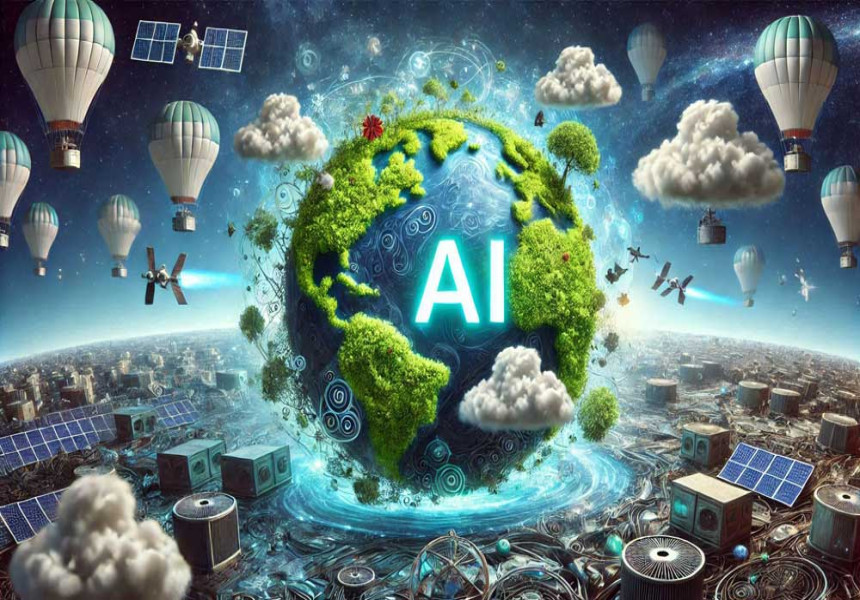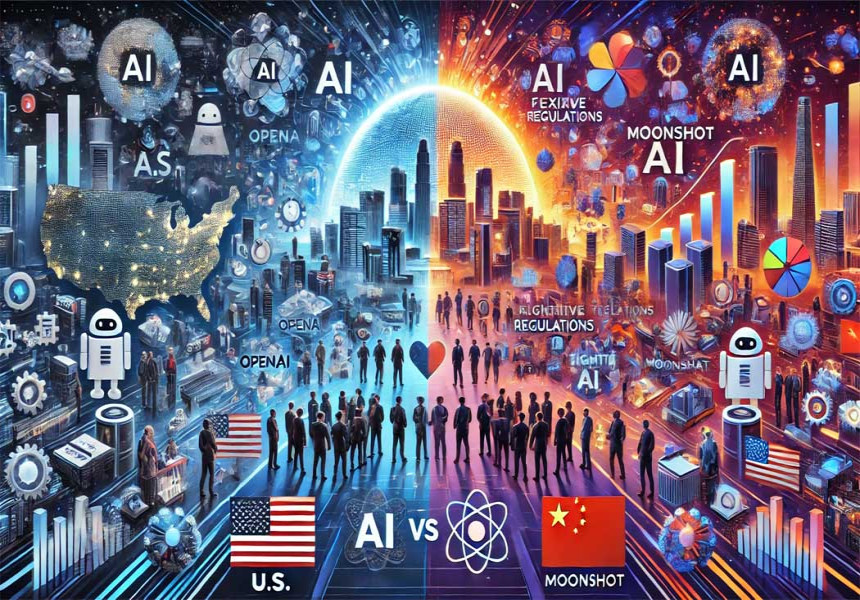Generative AI and Climate Change: A Double-Edged Sword
The rapid advancement of generative AI technologies is reshaping various sectors, including climate science and policy. However, this intersection raises significant concerns about sustainability, energy consumption, and the potential for exacerbating climate-related issues. As the world grapples with the urgent need to address climate change, understanding the implications of generative AI becomes increasingly critical.
The Energy Footprint of Generative AI
Generative AI models, particularly large language models (LLMs) like GPT-3 and GPT-4, require substantial computational power for training and operation. This demand translates into high energy consumption, which poses a challenge in the context of global efforts to reduce carbon emissions. Estimates suggest that the energy requirements for training these models could double within the next five to ten years, further straining energy resources and contributing to greenhouse gas emissions.
Moreover, data centers that support these AI systems consume significant amounts of water for cooling purposes. Reports indicate that some facilities have strained local water supplies during peak operations, raising concerns about their sustainability in water-scarce regions.
The environmental impact of generative AI extends beyond energy use; it also contributes to electronic waste (e-waste) due to the rapid turnover of hardware needed to support advanced computing capabilities.
Generative AI's Role in Climate Literacy
Despite its environmental challenges, generative AI has potential benefits in enhancing climate literacy among the public. Tools like ChatGPT can help individuals understand complex climate-related concepts by providing accessible information and answering questions about climate risks and adaptation strategies.
A study comparing responses from ChatGPT with credible hazard risk indices found a general agreement in many cases, although it also highlighted instances where the model underestimated certain risks, such as droughts.
This duality presents a critical opportunity: while generative AI can facilitate greater awareness and understanding of climate issues, it must be used judiciously to avoid spreading misinformation or downplaying serious risks associated with climate change.
The Risk of Climate Disinformation
One of the most concerning aspects of generative AI is its potential to amplify climate disinformation. As these technologies become more integrated into social media and information dissemination channels, they could inadvertently contribute to the spread of false narratives about climate science. The ability to create realistic deepfakes and misleading content poses a significant threat during critical periods, such as election years when climate policy is at stake.
The lack of regulatory frameworks governing AI development further complicates this issue. Currently, there are minimal federal regulations addressing the environmental impacts of AI technologies, leaving significant gaps in accountability and oversight.
Without robust policies in place, there is a risk that the hype surrounding AI's potential to solve climate problems may overshadow its contributions to existing challenges.
Opportunities for Innovation
On a more positive note, generative AI can catalyze innovation in climate research and technology development. By streamlining processes such as data synthesis and model interpretation, AI can help translate complex climate models into actionable insights for policymakers and businesses alike.
For instance, generative AI can facilitate better understanding of local climate impacts through simplified interfaces that make data more accessible to non-experts.
Additionally, AI's capabilities in optimizing energy systems can enhance the management of distributed energy resources like solar panels. By accurately forecasting supply and demand, AI can improve grid management and support the transition toward renewable energy sources.
The relationship between generative AI and climate change is multifaceted and fraught with challenges. While generative AI holds promise for enhancing climate literacy and driving innovation in sustainability efforts, its environmental footprint and potential for misinformation cannot be overlooked. As society continues to integrate these technologies into everyday life, it is imperative to prioritize sustainable practices and develop regulatory frameworks that ensure accountability. Future research should focus on understanding both the direct and indirect impacts of generative AI on climate change while exploring best practices for its responsible use. Balancing technological advancement with environmental stewardship will be crucial as we navigate this critical juncture in addressing one of humanity's most pressing challenges.









